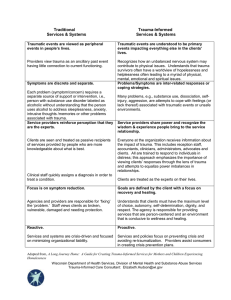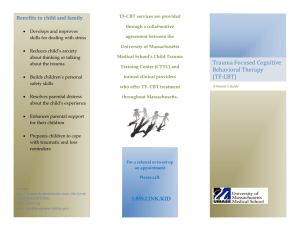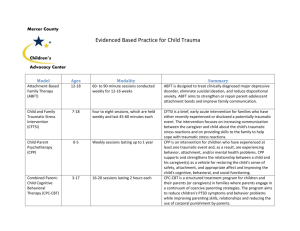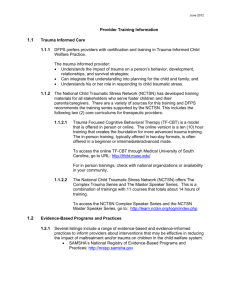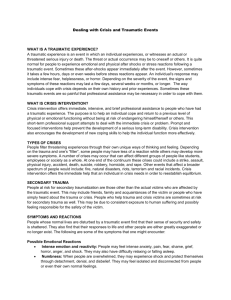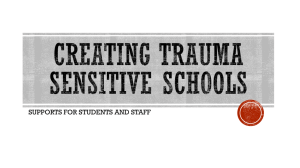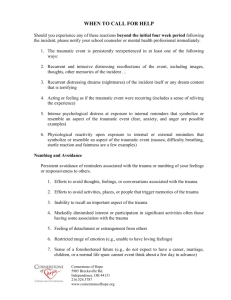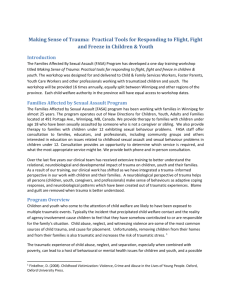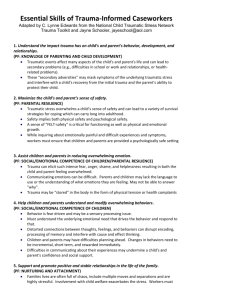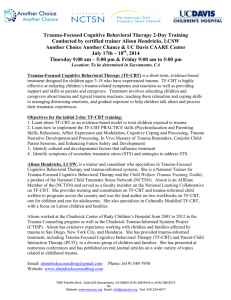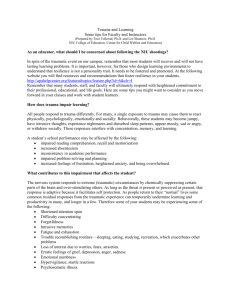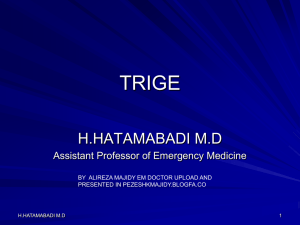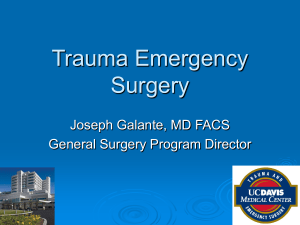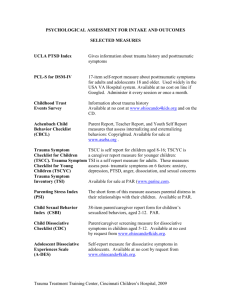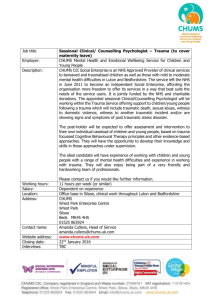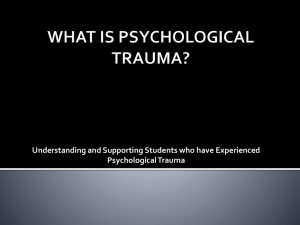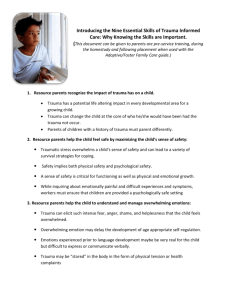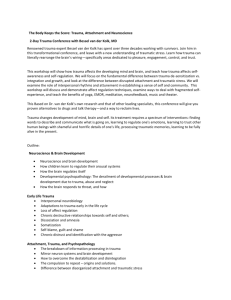Trauma-Focused Cognitive Behavioral Therapy - Tri
advertisement
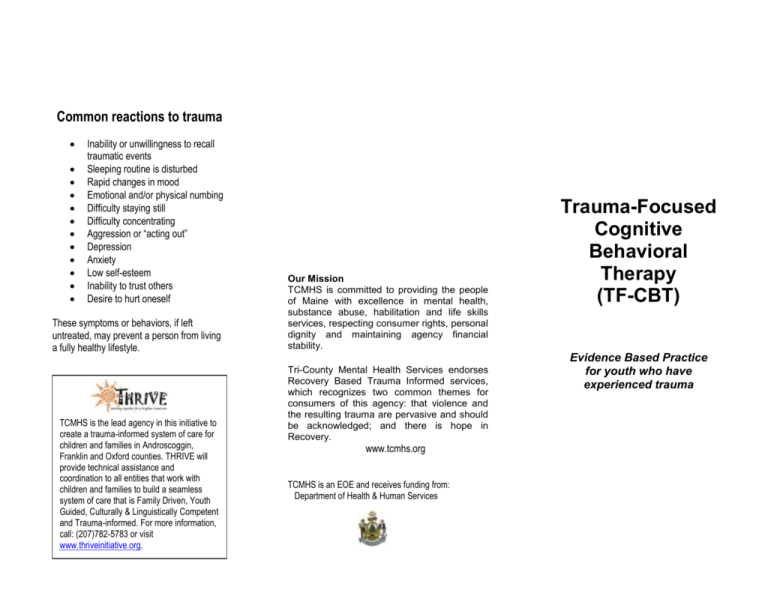
Common reactions to trauma Inability or unwillingness to recall traumatic events Sleeping routine is disturbed Rapid changes in mood Emotional and/or physical numbing Difficulty staying still Difficulty concentrating Aggression or “acting out” Depression Anxiety Low self-esteem Inability to trust others Desire to hurt oneself These symptoms or behaviors, if left untreated, may prevent a person from living a fully healthy lifestyle. TCMHS is the lead agency in this initiative to create a trauma-informed system of care for children and families in Androscoggin, Franklin and Oxford counties. THRIVE will provide technical assistance and coordination to all entities that work with children and families to build a seamless system of care that is Family Driven, Youth Guided, Culturally & Linguistically Competent and Trauma-informed. For more information, call: (207)782-5783 or visit www.thriveinitiative.org. Our Mission TCMHS is committed to providing the people of Maine with excellence in mental health, substance abuse, habilitation and life skills services, respecting consumer rights, personal dignity and maintaining agency financial stability. Tri-County Mental Health Services endorses Recovery Based Trauma Informed services, which recognizes two common themes for consumers of this agency: that violence and the resulting trauma are pervasive and should be acknowledged; and there is hope in Recovery. www.tcmhs.org TCMHS is an EOE and receives funding from: Department of Health & Human Services Trauma-Focused Cognitive Behavioral Therapy (TF-CBT) Evidence Based Practice for youth who have experienced trauma How will it help? What skills will be developed? What to expect? TF-CBT is a kind of treatment that can help There are several important skills that TF-CBT The treatment will last approximately 12 to 18 children and their caregivers cope with the focuses on to help those being treated: sessions. Sessions will generally be split negative impact of traumatic events such as: 1. Learning that the trauma was not their fault between the caregiver and the child. Studies sexual abuse physical abuse witnessing domestic violence loss of a family member war or terrorism accidents (e.g. motor vehicle) TF-CBT works best with children ages 6 to 18 who are having emotional or behavioral issues related to experiencing trauma, such as negative thoughts that will not go away, nightmares, trouble sleeping, frequent crying and fighting. TF-CBT can help children feel and that they are not alone. 2. Identifying feelings, where those feelings came from and how to manage them. 3. Finding ways to relax and cope with traumatic show that caregiver participation is a key factor in helping children heal from the trauma while helping caregivers learn new skills, including: memories. Managing feelings about traumatic experience 4. Identifying negative thoughts that cause depression and anxiety. 5. Learning to replace negative thoughts with positive ones. 6. Learning how to solve problems in a healthy way. Managing their child’s behavior Improving communication In cases where the caregiver has experienced their own trauma, assisting them in processing how their trauma has impacted or may 7. Learning safety skills. impact their child. less anxious, more confident and trusting and to understand how their thoughts, feeling and behaviors are interconnected. How to Refer Referral Line: 1-888-304-HOPE(4673) For more information contact: Kim Foskett, LCPC Child and Family Services Manager 12/29/08 at (207) 783-9141 x202 What is an Evidence Based Practice? Practices or treatments that have been tested through repeated studies, and have been proven to be effective are described as “evidence based.” These practices are overseen by supervisors to help ensure that providers follow the approved treatment procedure.
